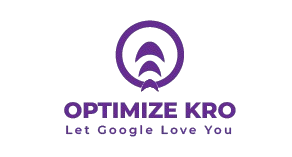Step 1 – Extract Insights from Google Search Console
Start inside Google Search Console → Performance Report.
- Enter the exact URL of the page you want to improve.
- Review queries with high impressions, decent average position (8–20), but low CTR.
- Focus on the top 3–4 search terms that naturally describe the service or solution.
💡 These queries show you how real users phrase their searches. They also reveal semantic variations Google already associates with your page.
- Step 1 – Extract Insights from Google Search Console
- Step 2 – Select Core and Supporting Keywords
- Step 3 – Rewrite Meta Tags with Semantic Relevance
- Step 4 – Optimize H1 with Search Intent
- Step 5 – Enhance On-Page Content with NLP Entities
- Step 6 – Track and Iterate
- Why This Works (Competitive Advantage)
- What Our Clients Say
Step 2 – Select Core and Supporting Keywords
From the list of queries:
- Choose one primary keyword (the phrase with the strongest intent + search demand).
- Identify 2–3 secondary phrases (long-tail variations, synonyms, and related entities).
⚡ Example: If your page ranks for “window installation Missouri”, supporting terms could be “replacement windows Missouri”, “energy-efficient window installation”, or “home window services Missouri.”
Step 3 – Rewrite Meta Tags with Semantic Relevance
Title Tag (Keep under 60–65 characters)
- Lead with the primary keyword.
- Add context or trust element (brand, location, benefit).
- Example: “Window Installation in Missouri | Trusted 417 Forged Experts”
Meta Description (145–155 characters)
- Use primary + secondary keywords in natural sentences.
- Focus on value, benefits, and a call-to-action.
- Example: “Affordable window installation in Missouri. Energy-efficient solutions, expert craftsmanship, and lasting protection. Book your free quote today.”
Step 4 – Optimize H1 with Search Intent
Reframe the H1 heading around the exact search phrasing.
- Example: “Professional Window Installation Services in Missouri”
This signals to Google that your page directly answers user intent while staying readable for visitors.
Read Morte:
Ahrefs Backlink Analysis Tool
Ahrefs Keyword Research Tool
Ahrefs Content Explorer Tool
Ahrefs Keywords Explorer Tool
Step 5 – Enhance On-Page Content with NLP Entities
- Integrate supporting phrases in H2s, intro text, and FAQ sections.
- Sprinkle in semantic entities like “home improvement,” “residential contractors,” “energy savings,” “Missouri homeowners”.
- Add internal links using contextual anchors like “see our custom home building services” instead of generic “click here.”
- Update old content with fresh data, benefits, or pricing ranges to improve topical authority.
Step 6 – Track and Iterate
- Monitor click-through rate and ranking shifts inside GSC over 2–4 weeks.
- Compare CTR before and after updates.
- Repeat the optimization cycle for other high-impression pages.
Why This Works (Competitive Advantage)
Unlike keyword stuffing, this approach:
- Uses real GSC user data to uncover how people search.
- Creates semantic alignment between Title, Meta, H1, and body content.
- Improves relevance and engagement signals (CTR, dwell time, topical coverage).
Search engines reward pages that mirror natural search language, cover related entities, and match user intent precisely.
What Our Clients Say
Trusted by contractors and local businesses for proven Local SEO Services.
John M. – General Contractor
“These guys transformed my Google Maps ranking. More calls, more local leads, and better visibility!”
Sarah L. – Roofing Business
“Within 3 months, my business went from page 3 to the top 3 listings. Highly recommend their Local SEO service!”
David K. – Plumbing Services
“Affordable and effective SEO. My local service calls doubled in less than 90 days.”
To rank high on Google, focus on quality content, relevant keywords, fast loading speed, mobile optimization, backlinks, and regular SEO updates.
To improve your Google Maps ranking, optimize your Google Business Profile, get more positive reviews, add accurate business details, use local keywords, post regularly, and build local backlinks.
You can improve SEO with Google Search Console by tracking keyword performance, fixing crawl errors, submitting sitemaps, improving click-through rates, and monitoring backlinks and page indexing.
To get a top position on Google, create high-quality content, use relevant keywords, build strong backlinks, optimize for mobile and speed, and keep your website updated with SEO best practices.
To boost SEO on Google Maps, optimize your Google Business Profile, use accurate NAP (Name, Address, Phone) details, add photos, get positive reviews, post updates, and build local citations and backlinks.
The Google ranking algorithm is a system that determines how web pages appear in search results based on factors like content quality, relevance, backlinks, user experience, site speed, and mobile-friendliness.
The best algorithm for ranking on Google is its PageRank system, which evaluates the quality and quantity of backlinks along with modern updates like RankBrain and BERT that focus on content relevance and user intent.
White hat SEO refers to ethical optimization practices that follow Google’s guidelines, such as creating quality content, using relevant keywords, earning natural backlinks, and improving user experience.
The three key ranking factors Google uses are content quality, backlinks, and RankBrain (which measures user experience and search intent).

Gulfam Qamar is a seasoned Local SEO expert with a proven track record of helping businesses boost their online visibility and dominate local search results. With deep expertise in Google Business Profiles, on-page optimization, and local citation strategies, Gulfam helps brands connect with nearby customers and grow sustainably. When he’s not optimizing websites, he’s sharing actionable SEO tips and insights to empower small businesses in the digital space.

